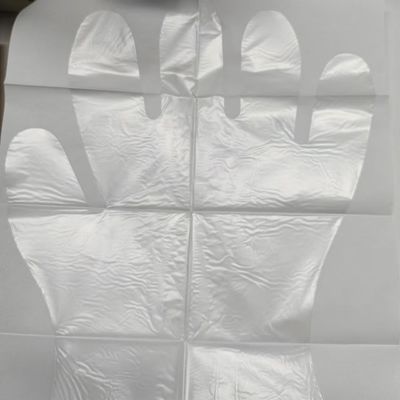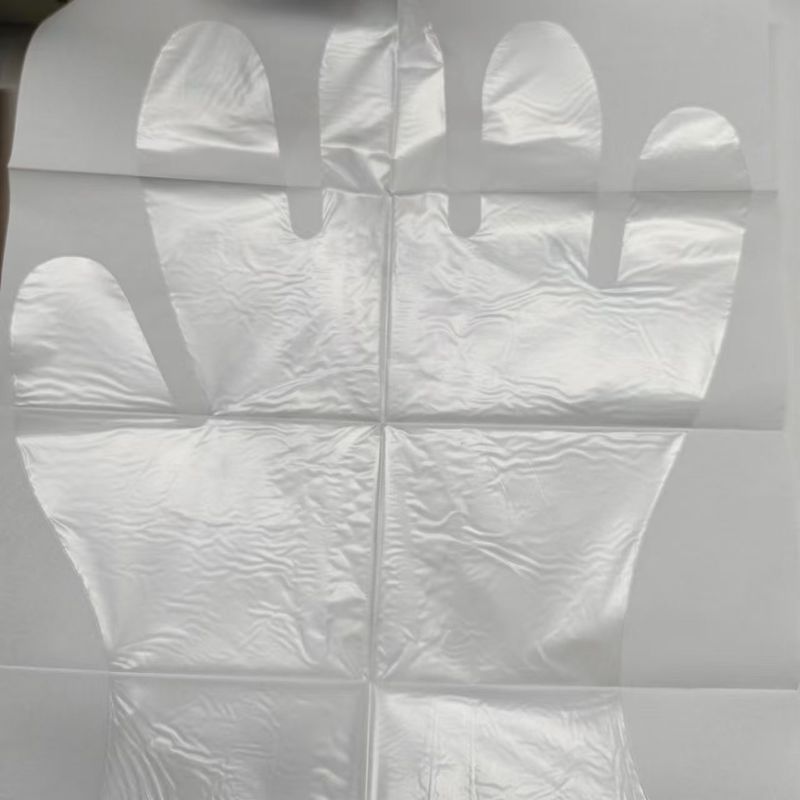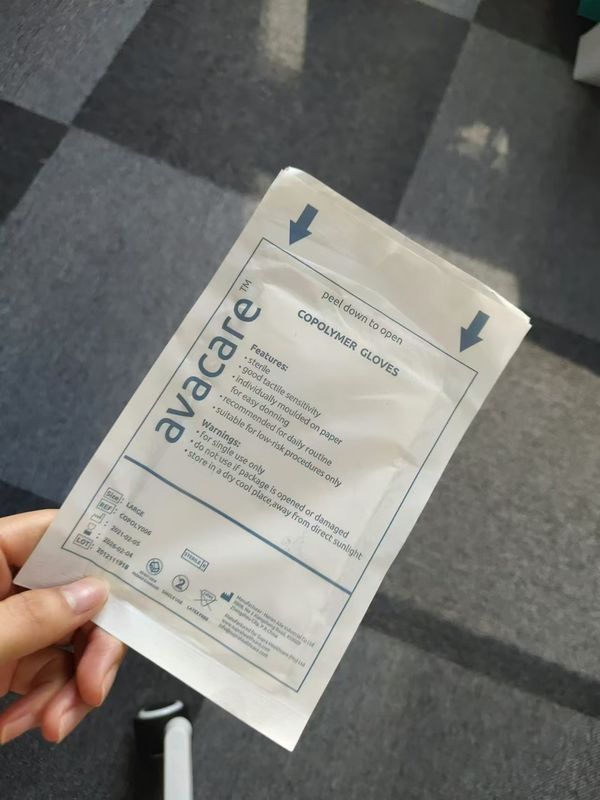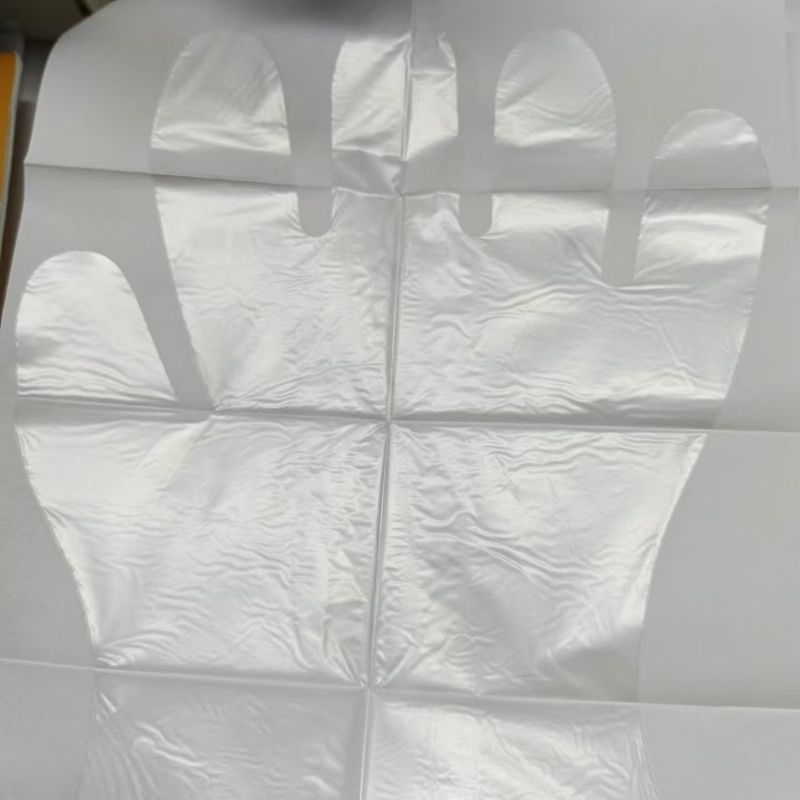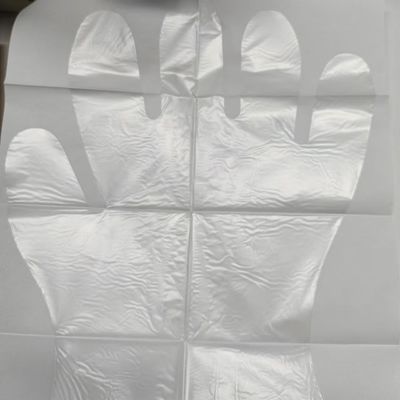
Custome Coploymer Gloves Sterile Good Tactile Sensitivity For Single Use Only
-
Highlight
Good Tactile Sensitivity Coploymer Gloves
,Single Use Coploymer Gloves
,Sterile Coploymer Gloves
-
NameCoploymer Gloves
-
FunctionAnti-slip, Water Proof, Touch Screen, Epidemic Prevention, Clean, Hand Care, Food Processing
-
SizeCustom Size Accepted
-
ColorCustomized Color
-
FeatureMulti-functional
-
CertificateISO
-
DesignCustomer'requirement
-
PackingIndividual Packing
-
MaterialCoploymer
-
Place of OriginChina
-
Brand NameHenan
-
CertificationCE
-
Model NumberCan be Customized
-
Minimum Order Quantity5000pcs
-
PriceNegotiable
-
Packaging DetailsIndividual Packing
-
Delivery Time24-30 days
-
Payment TermsL/C, T/T, Western Union
-
Supply Ability50000000pcs per month
Custome Coploymer Gloves Sterile Good Tactile Sensitivity For Single Use Only
Custome Coploymer Gloves Sterile Good Tactile Sensitivity For Single Use Only
1.Product Description
Polymer gloves are a type of gloves made from polymers, which are synthetic materials that offer durability, flexibility, and resistance to chemicals. These gloves are commonly used in various industries such as healthcare, food handling, cleaning, and more.
Polymer gloves provide a strong barrier against contaminants and are latex-free, making them suitable for individuals with latex allergies. They are available in different sizes to ensure a comfortable fit, and some varieties come textured for improved grip.
Overall, polymer gloves are a reliable choice for tasks that require hand protection and hygiene, offering a balance of comfort and functionality for the user.
2.Key Features
- Sterile
- Good tactile sensitivity
- Individually moulded on paper for easy donning
- Recommended for daily routine
- Suitable for low-risk procedures only
- For single use only
- do not use if package is opened or damaged
- Store in a dry cool place, away from direct sunlight
- Durable: Polymer gloves are known for their durability, providing a reliable barrier against contaminants and chemicals.
- Latex-Free: These gloves are suitable for individuals with latex allergies, offering a safe alternative for those with sensitivities.
- Flexibility: Polymer gloves are flexible and conform to the shape of the hand, allowing for comfortable wear during extended use.
- Chemical Resistance: They provide resistance to a wide range of chemicals, making them ideal for use in industries where exposure to hazardous substances is a concern.
- Textured Surface: Some polymer gloves come with a textured surface for enhanced grip, improving handling of objects and reducing the risk of slippage.
- Variety of Sizes: Available in various sizes, polymer gloves ensure a proper fit for different hand sizes, enhancing comfort and dexterity.
- Multi-Purpose: Suitable for use in healthcare settings, food handling, cleaning tasks, laboratories, and more, polymer gloves are versatile and widely used across different industries.
3.Product picture
![]()
4.Application
- Healthcare: Polymer gloves are extensively used in healthcare settings such as hospitals, clinics, and laboratories to maintain hygiene standards and protect both patients and healthcare workers from potential infections.
- Food Handling: In the food industry, polymer gloves are essential for food preparation, handling, and service to prevent contamination and ensure food safety.
- Cleaning Services: Gloves made from polymers are commonly used by cleaning professionals for tasks that involve exposure to cleaning chemicals and potential hazards.
- Manufacturing: In manufacturing environments, polymer gloves are used to protect workers' hands from chemicals, oils, and other substances, ensuring safety and preventing skin irritation.
- Research Laboratories: Researchers and lab technicians wear polymer gloves to handle chemicals, biological samples, and other hazardous materials safely.
- Beauty and Cosmetics: Professionals in the beauty industry, including hairstylists, estheticians, and nail technicians, use polymer gloves to maintain hygiene standards and protect themselves and their clients.
- Automotive Industry: Workers in the automotive industry wear polymer gloves to protect their hands from oils, greases, and chemicals used in vehicle maintenance and repair.
- Janitorial Services: Janitors and cleaning staff use polymer gloves for a variety of cleaning tasks in commercial and residential settings to protect their hands and maintain cleanliness.
5.What is a copolymer glove?
N Medical Copolymer Gloves are made from 100% synthetic non-allergic co-polymer material. The powder free gloves' textured surface provides superb tactile sensitivity. The individually packed gloves are sterilised for single use to ensure optimal safe health procedures for user and patients.
6.What are the different types of polymer materials used for gloves?
- Nitrile: Nitrile gloves are a popular choice for many industries due to their durability, chemical resistance, and puncture resistance. They are latex-free, making them suitable for individuals with latex allergies.
- Vinyl: Vinyl gloves are cost-effective, comfortable to wear, and offer basic protection against mild chemicals and contaminants. They are latex-free but are less durable compared to nitrile or latex gloves.
- Latex: Although not strictly a polymer, latex gloves are made from natural rubber latex and offer excellent elasticity and comfort. However, they may cause allergic reactions in some individuals.
- Neoprene: Neoprene gloves provide good chemical resistance and protection against oils and greases. They are commonly used in industries where exposure to chemicals is a concern.
- Polyethylene: Polyethylene gloves are lightweight and inexpensive, often used in food handling and light-duty applications where a simple barrier is needed.
- Polyurethane: Polyurethane gloves are known for their excellent tactile sensitivity and dexterity. They are often used in industries where precision handling is required, such as electronics assembly.
- Polyvinyl Chloride (PVC): PVC gloves offer good resistance to oils and chemicals and are commonly used in industries like mining, construction, and chemical processing.
- Polyisoprene: Polyisoprene gloves provide a latex-like feel and sensitivity without the risk of latex allergies. They are commonly used in healthcare settings where tactile sensitivity is crucial.

